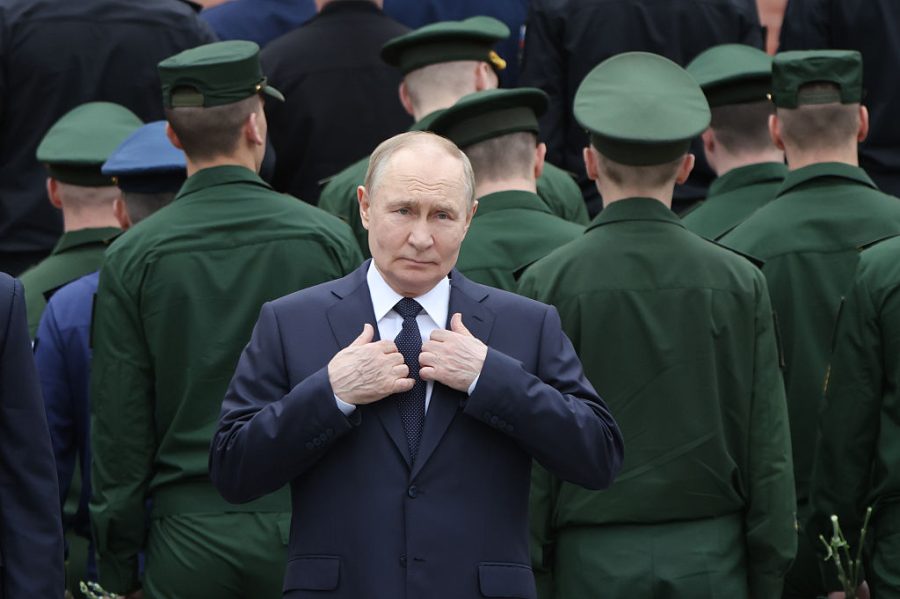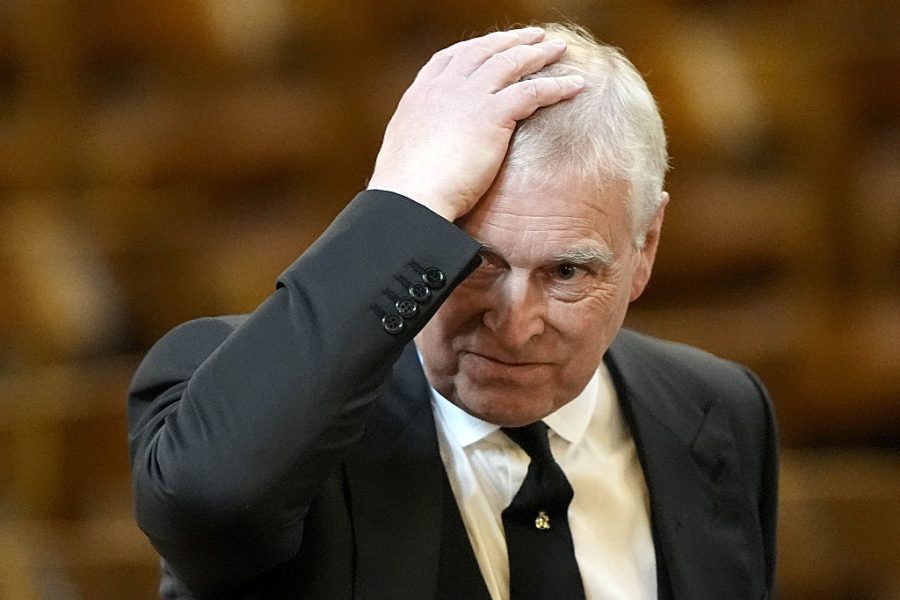At the very time when those warmongering Nato nations are pledging to raise their defence spending substantially, that doveish peacenik Vladimir Putin is promising to reduce his. It’s hard to know which of these two commitments is less plausible, but those anticipating the cranking down of the Russian war economy any time soon are going to have to wait rather longer.
At the recent St Petersburg International Economic Forum (SPIEF), Putin said that:
We are planning to reduce defence spending. For next year and the year after that and so on – for the next three years – we are planning to do so, although there is not yet a final agreement between the Ministry of Defence, the Ministry of Finance and the Ministry of Economic Development, but overall everyone is thinking in that direction.
The real risk for Putin is of prolonged economic decline, recession and stagflation
In part, this was a response to the decision at last week’s Nato summit to commit alliance members to a planned 5 per cent spend on defence. Of course, this is only a target and – just as not all members hit the previous 2 per cent figure – most will only slowly, if ever, reach this level. Spain, for example, has incurred the wrath of Donald Trump by already opting out, with Prime Minister Pedro Sánchez saying that 2.1 per cent is ‘sufficient and realistic’.
Besides, Nato’s new target is not really 5 per cent, but rather 3.5 per cent on core defence spending and 1.5 per cent on related line items. As this can include everything from Ukraine aid to fixing transport infrastructure (wouldn’t it be wonderful if Britain’s potholes could be filled in the name of defence as a result?), it is essentially meaningless.
Nonetheless, some Russian propaganda has been juxtaposing the Nato decision with Putin’s words to present him as the dove, especially to the Global South, which was something of a focus of the increasingly-marginal SPIEF.
More important, though, have been the warning signs within the Russian economy. Although certainly no Communist, Putin has often held an almost Bolshevik line on the economy: that somehow market forces ought to be able to be made to bend to indomitable political will. This works no better in the mid 2020s than it did in the late 1910s.
Even technocrats, generally excluded from Putin’s innermost circle and expected to shut up and get on with keeping the engines of the ship of state turning, have begun breaking cover. Minister of Economic Development Maxim Reshetnikov warned that Russia was already ‘on the verge’ of economic recession, while Elvira Nabiullina, the highly capable governor of the Central Bank, made it clear that previous 4 per cent economic growth reflected not just defence spending but the take-up of idle industrial capacity and that it would not continue.
Of late, Nabiullina has come under growing political attack from the hawks for her ‘pessimism’, but now hers is no longer an isolated voice of caution. Alexander Shokhin, chair of the Russian Union of Industrialists and Entrepreneurs, has frankly admitted that many companies are on the verge of default. Even the oligarch Arkady Rotenberg, one of Putin’s closest childhood friends, has obliquely criticised the impact of the war and sanctions as businesses struggle with the high interest rates necessitated by the need to control inflation.
Putin has tried to dispel this talk with his usual mix of confidence and implied threat: ‘Some specialists and experts are pointing to the risks of stagnation or even a recession. This, of course, must not be allowed to happen under any circumstances.’ Nonetheless, while it is questionable whether the defence budget is likely to be reduced at all while the war in Ukraine still wages – and even after, it will by necessity remain high as Russia rebuilds its ravaged armed forces – his words at SPIEF do suggest a belated awareness that there are serious economic risks and long-term consequences.
These risks and consequences are not, though, enough in and of themselves to force Putin to end the war. When Russia is doing well in the war, the call from Kyiv and its Western supporters is for more sanctions to turn the tide; when it is doing badly, it is for more sanctions to finish the job. The truth of the matter is that while sanctions are working in imposing extra costs on the Russian war economy, neither they, nor the impact of the conflict, are going to ‘crash’ the system. The real risk for Putin is of prolonged economic decline, recession and stagflation.
The challenge is that this will force Putin to make the hard guns versus butter decisions he has so far largely dodged. Of course, he will choose guns, and this runs the risk of deepening public and elite discontent. The economic technocrats, after all, are not the only ones who are sounding warnings – those in law enforcement are too. Interior Minister Kolokoltsev, a career police officer, is admitting that his force is now heavily understrength. Prosecutor General Krasnov, who made his reputation as a skilled investigator, is reporting that corruption cases have risen by 25 per cent since the same quarter last year.
These are no dissidents, but insiders trying to warn the monarch of stresses on the system. Putin may at least be hearing them, but considering that he still seems committed to his war, can he offer more than empty promises in return?








Comments